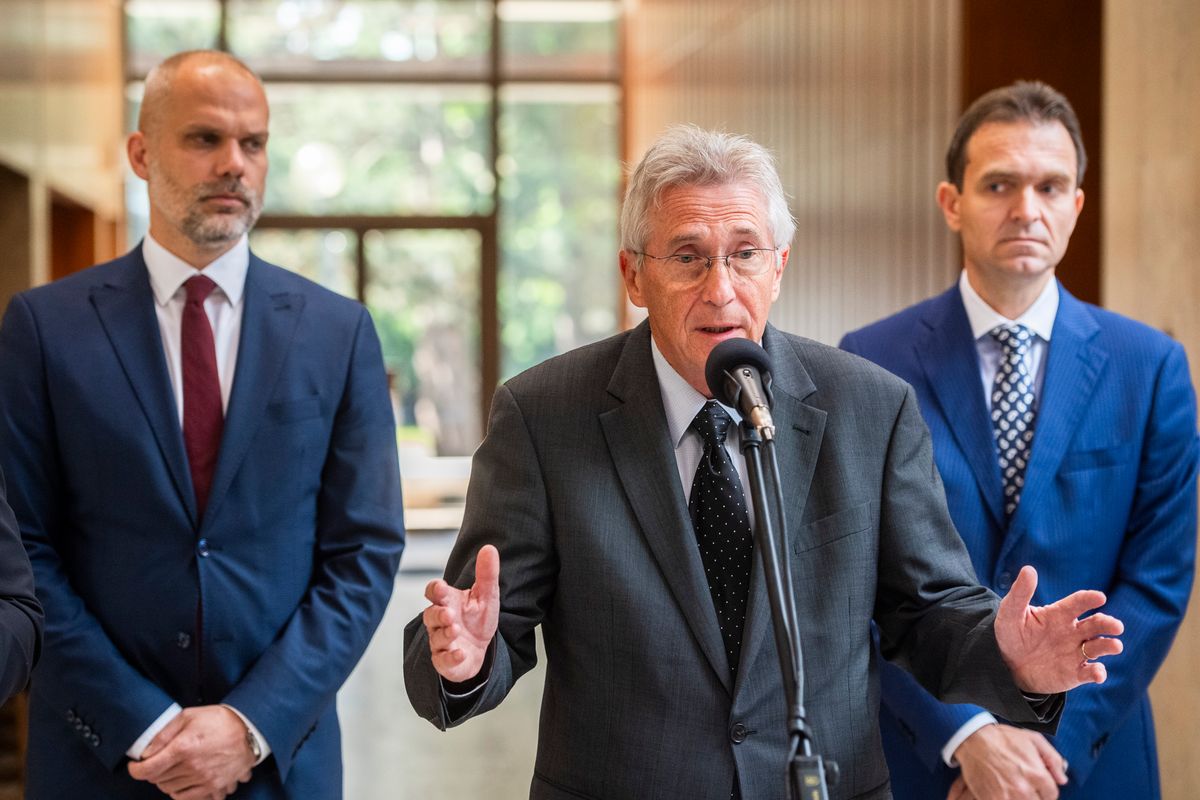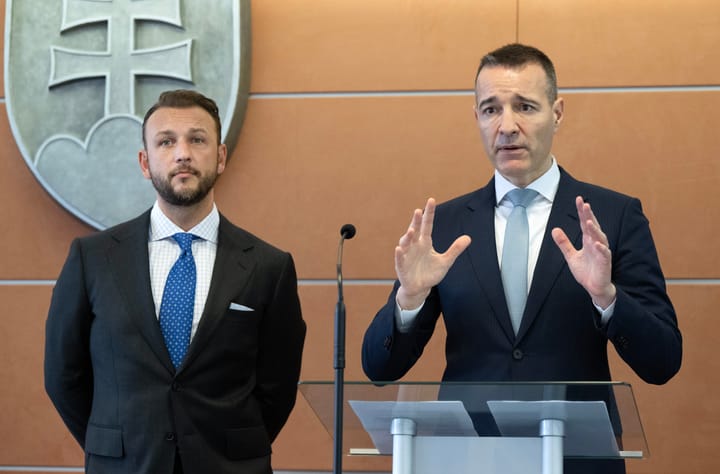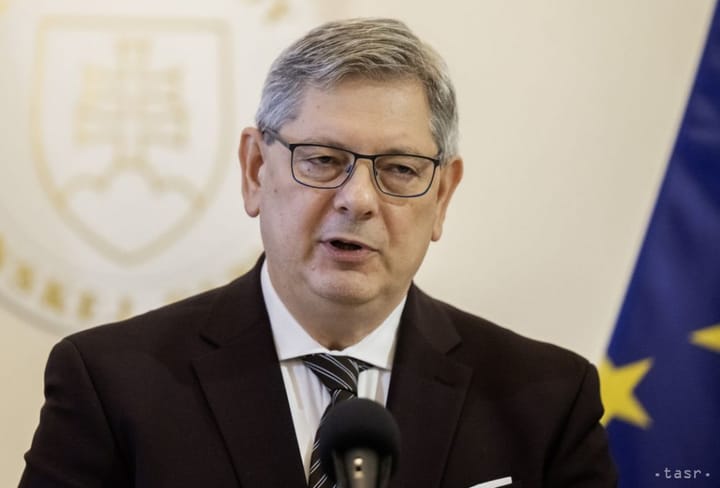Premier: Youth in Slovakia Becoming Radicalised, Mainly Online
Young people in Slovakia are becoming radicalised, chiefly online, Premier Ludovit Odor and Interior Minister Ivan Simko told the media following a Security Council meeting on Wednesday.

Bratislava, June 28 (TASR) - Young people in Slovakia are becoming radicalised, chiefly online, caretaker Premier Ludovit Odor and Interior Minister Ivan Simko told the media following a Security Council meeting on Wednesday, adding that this concerns individual cases and not cooperation between several people or the formation of groups.
According to Odor, the police have thwarted several incidents at schools and need to monitor the situation in more detail. They must also intensify cooperation with schools so that dangerous activities are nipped in the bud and eliminated. "It mostly involves students who yield to radicalisation on social networks. It concerns physical assaults, but we've recorded armed attacks as well. Fortunately, there haven't been any casualties," stated Simko. "We've also recorded the production of explosives," said Simko, specifying that there have been up to ten such cases recently.
Police Corps President Stefan Hamran pointed out that the reasons why young people are being radicalised can often be found in irresponsible statements by politicians, who polarise society in this way, introducing tension and aggression into it. "Young people often seek role models in politically exposed figures, who are able to communicate in a very persuasive manner," he said.
Hamran sees another problem in insufficient controls and prevention of the spread of radicalisation in the school environment. "There are cases in which children share on computers content that is really toxic in the opinion of the police; for example, they share videos of terrorist acts," said Hamran.
The Security Council also dealt with the weekend's events in Russia. It doesn't perceive a risk to the security of Slovakia and Slovaks for now. "Although we view the situation as stable at the moment, we still insist on recommending that our citizens shouldn't travel to Russia," stated Odor.
Illegal migration was on the agenda of the Security Council meeting as well. Odor characterised the current situation as calm. It mainly involves migrants who don't want to stay in Slovakia and continue on to third countries. They aren't a security risk to the Slovak Republic, he added.



